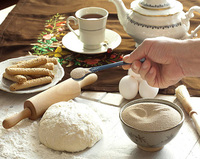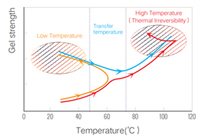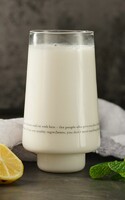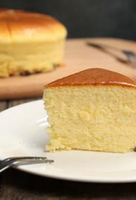Colloid
Product Quick Detail
- FOB Price
- USD $200.00 / Piece
- Minimum Order
- 1
- Place Of Origin
- Jiangsu
- Packaging
- Airtight vacuumed aluminum foil bag
- Delivery
- 5-10 working days
Specifications
Application of Colloids in Food Industry
In the food processing industry, the colloid is the one that thickens food, provides adhesion and gel-forming ability, and helps to obtain the desired shape, viscosity, hardness, thickness,
crispness and softness of food. For example, the natural colloid can act as a thickener in some soups and sauces. It can also perform gel-forming ability in pudding and jelly, or emulsify in
yogurt, ice cream, etc.
As a professional colloid company, Yiming can provide you with a list of different colloids. Feel free to contact us for more information.
Types of Colloid
Curdlan
Agar-agar
Gellan Gum
Carrageenans
Konjac Gum
Colloids In Food
Colloids In Dairy products
Dairy products
milk, yogurt
Colloids In Sauces
Sauces
salad dressing, tomato sauce, gravy
Colloids In Desserts
Desserts
jelly, pudding
Colloids In Surimi products
Surimi products
fish ball, crab stick, fish tofu
What are the Properties of Colloid
Stability: The colloidal properties are stable. The particles in the dispersed phase move continuously and remain suspended in the solution.
Filterability: The colloid needs a special filter, that is, an ultrafilter to filter it. The colloid can easily pass through the filter paper without residue.
Heterogeneity: Since colloid is composed of dispersed phase and dispersion medium, it is called heterogeneity in nature.
Homogeneous appearance: Although colloids have suspended particles and are heterogeneous in nature, they appear to be homogeneous solutions. This is because the suspended particles are very small
and invisible to the naked eye.
Application of Colloids in Food
Colloids have great applications in the food industry. Many of the food materials we eat are colloidal in nature. Milk and many dairy products, such as cheese and butter, are all colloids.
More precisely, milk is an emulsion (liquid in a liquid colloidal system). In milk, butter and fat are dispersed in water. Bread is a colloidal system in which air is dispersed in the baked dough.
FAQs of Colloid
What is a colloid?
In chemistry, a colloid is a phase separated mixture in which one substance of microscopically dispersed insoluble or soluble particles is suspended throughout another substance.
What are the 5 types of colloids?
Combining different substances can result in five main types of colloid mixtures: aerosols, foams, emulsions, sols and gels.
What are the characteristics of a colloid?
A colloid must be heterogeneous, i.e., consist of dissimilar constituents, for example, silver and water. It must be multiphasic, i.e., solid/liquid, gas/liquid, etc. The particles must be
insoluble in the solution or suspension.
Are colloids safe for everyone?
In fact, most common edible colloids are natural. Some are carbohydrates and proteins, others are derived from microbial fermentation.
We also have types of natural preservatives for drinks for sale, if you have needs, please contact us.
- Country: China (Mainland)
- Business Type: Manufacturer
- Founded Year: 1998
- Address: No.333 Longhe Road, Taixing City, Jiangsu Province, China
- Contact: YIMING BIOTECH











